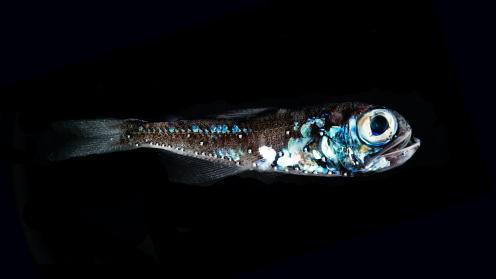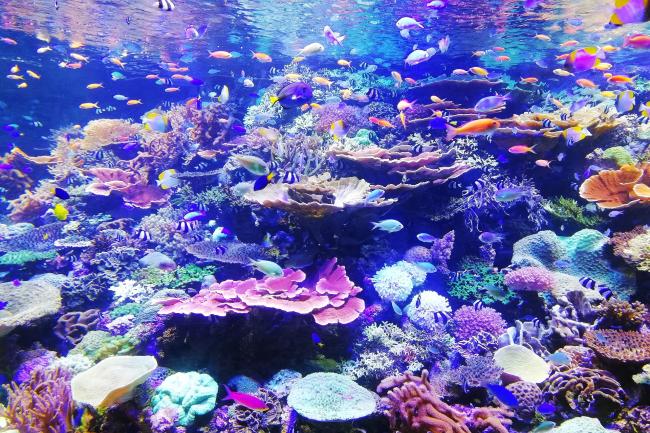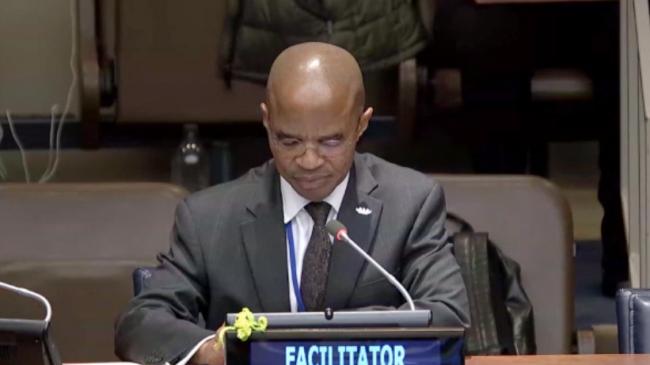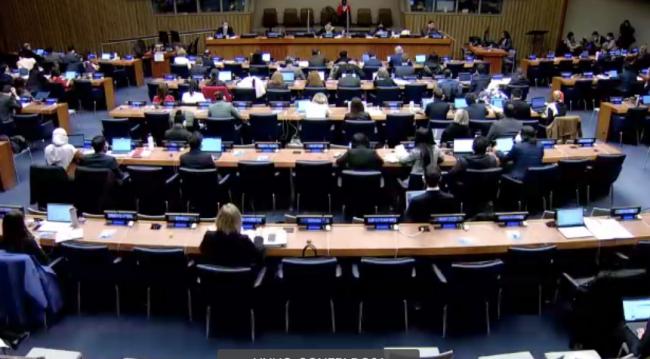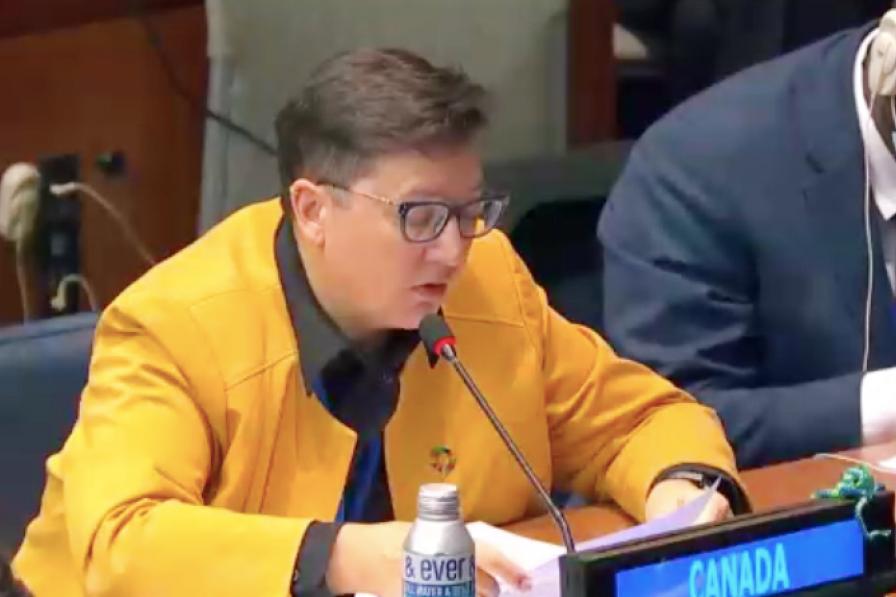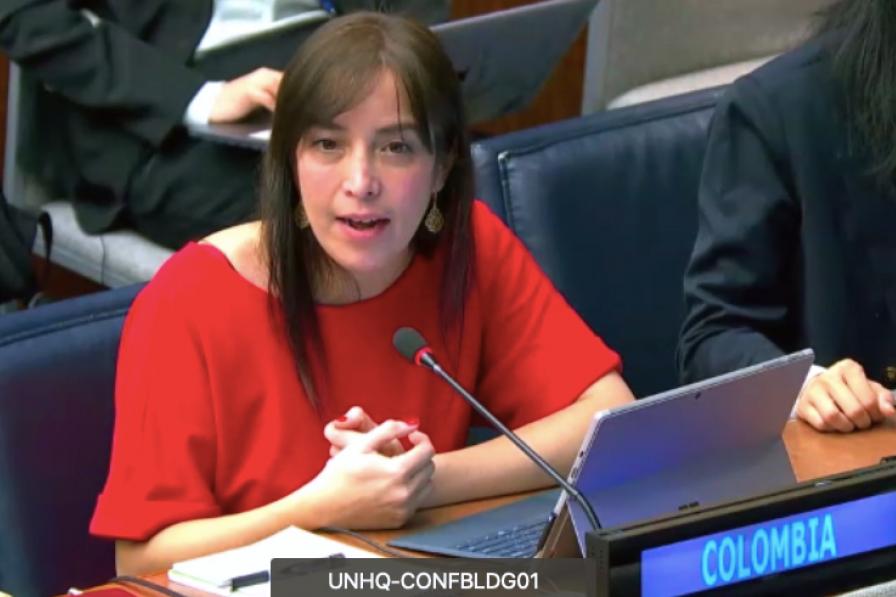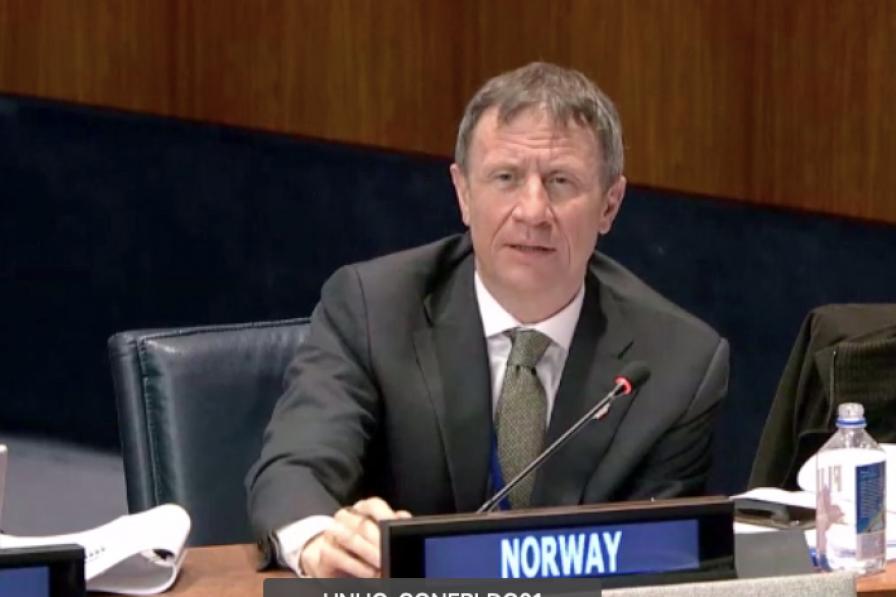On Monday, 14 March 2022, delegates attending the fourth meeting of the intergovernmental conference (IGC-4) on an international legally binding instrument under the United Nations Convention on the Law of the Sea on the conservation and sustainable use of marine biological diversity of areas beyond national jurisdiction (BBNJ) opened discussions on cross-cutting issues. Facilitated by Thembile Joyini (South Africa), they considered institutional arrangements, discussing specific bodies envisioned under the new instrument. They addressed the:
- Conference of the Parties (COP);
- Science and technical body; and
- Secretariat.
Their discussions focussed on the functions of these bodies, highlighting the overall decision-making role of the COP to, among other things, establish subsidiary bodies or working groups. In their discussions on a possible scientific and technical body, many were supportive of excluding a list of assigned functions. Others called for a scientific, technical and technological body, noting the importance of technological know-how for this instrument, particularly as it relates to the transfer of marine technology to developing countries. On the instrument’s secretariat functions, a number of delegations preferred that these be performed by the Division for Ocean Affairs and the Law of the Sea (DOALOS) or another existing instrument, with some calling for additional financing for, and restructuring of, DOALOS if it were to take on the additional secretariat functions. Many also raised questions to DOALOS on the feasibility of any new arrangements. A few kept the door open for an altogether new secretariat, highlighting the need for a body solely dedicated to the new instrument. Facilitator Joyini called on delegations to engage further on these issues, urging them to also consider new language proposals that could move them towards consensus.
During a morning stocktaking plenary, IGC President Rena Lee (Singapore), and Facilitator Reneé Sauvé (Canada) provided summaries of Week One discussions on marine genetic resources, including questions on the sharing of benefits, area-based management tools, including marine protected areas, and capacity building and the transfer of marine technology. They outlined issues where they saw convergence, and points for which more work would be needed to reach consensus. President Lee also noted that the Bureau would discuss next steps, especially on those issues that would not be considered at this meeting. She announced that the final stocktaking plenary would be held on Thursday or Friday, 17 or 18 March, depending on the pace of discussions planned for this week.
With civil society representatives back in the room, the participation requirements stipulated under the UN General Assembly resolution 72/249 were back in full operation, and many delegations welcomed NGO representatives warmly. While delegates tuning in may not be able to hear civil society voices in the conference room due to COVID-19 restrictions, their access to the building could mean that they have some opportunity to interact with states and perhaps provide creative language to bridge the gaps on some issues.
To receive free coverage of global environmental events delivered to your inbox, subscribe to the ENB Update newsletter.
